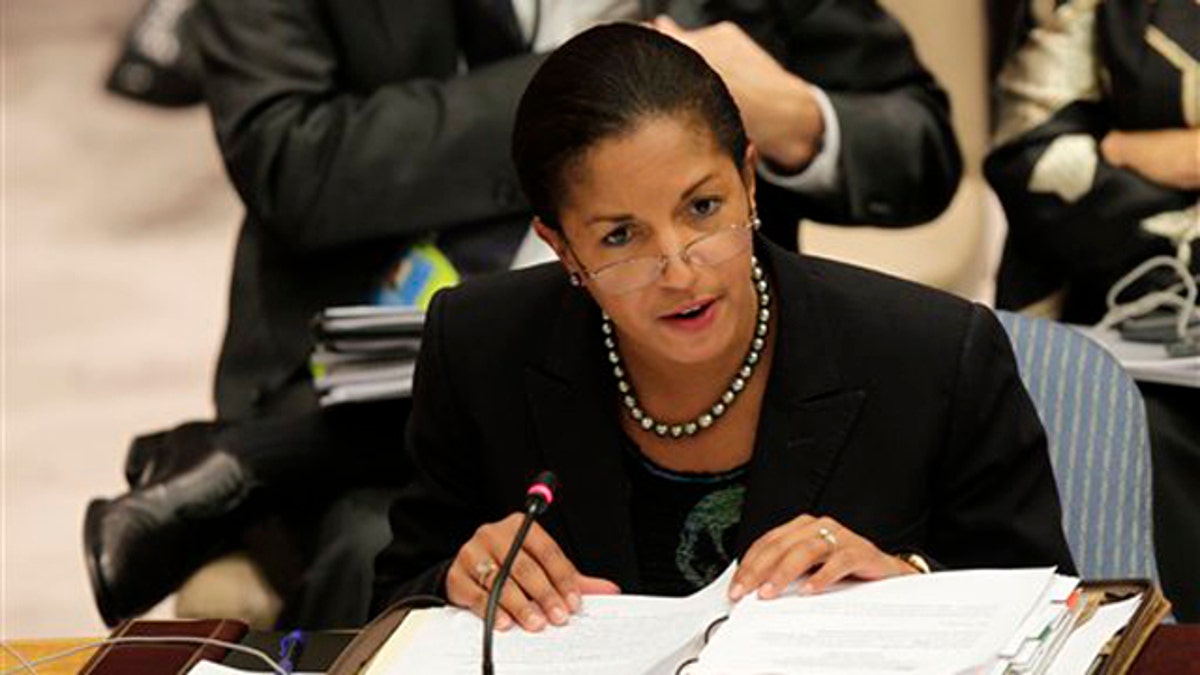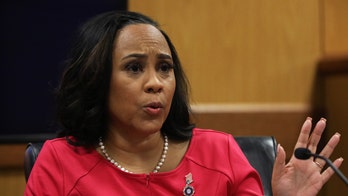
FILE: Undated: The U.S. Ambassador to the United Nations Susan Rice speaks at the General Assembly headquarters in New York. (AP)
The United States is trying to convince undeclared members of the U.N. Security Council to deny the Palestinians the votes they need for a controversial statehood application, as the council meets behind closed doors Monday afternoon.
The U.S. has the power to quash the bid in the Security Council just by using its veto power, and has announced its willingness to do so. However, amid warnings that a U.S. veto would damage America's reputation in certain parts of the world, U.S. officials are hoping to avoid that outcome.
On the Security Council, it takes nine "yes" votes to approve the application. At the moment, council diplomats tell Fox News that just six votes can be counted on -- China, Russia, Lebanon, Brazil, India and South Africa. The European members of the Security Council -- The United Kingdom, France, German and Portugal -- are inclined to vote against the measure or abstain.
The U.S. hopes to avoid using the veto by convincing undeclared members of the Security Council -- Bosnia, Colombia, Nigeria and Gabon -- that it is not the right time to vote on Palestinian statehood in the council because the Palestinians and the Israelis need to return to negotiations first to resolve their differences.
That would deprive the Palestinians of the nine votes needed.
The council was meeting Monday afternoon to discuss the application, on the initiative of the Lebanese president of the Security Council, an outspoken supporter of the Palestinian cause.
U.S. ambassador to the U.N., Susan Rice, will take part in the negotiations.
Asked about U.S. efforts to lobby other members, State Department spokesman Mark Toner would not get into detail.
"Our public comments reflect what our private conversations are, which is that we're not for anything that we believe is going to impede our ultimate goal here, which is to get both sides back to the negotiating table," he said Monday.
The geopolitical balance of the 15-member council coupled with the threat of a U.S. veto makes the Palestinian bid for statehood an uphill battle at this point.
But as a showdown in the Security Council looms, the Palestinians still have the option, which they have not exercised yet, to bring the statehood bid to the General Assembly.
Recognition of statehood in the General Assembly would upgrade the Palestinian Authority to U.N. permanent observer status, a major step toward recognition of statehood.
Despite renewed efforts by U.S. representatives to get the Israelis and Palestinians back to the negotiating table, Palestinian President Mahmoud Abbas is proceeding with the statehood push. In his application for membership to the United Nations, Abbas said that a "State of Palestine" would affirm "its commitment to the achievement of a just, lasting and comprehensive resolution of the Israeli-Palestinian conflict based on the vision of two states living side by side in peace and security."




